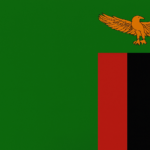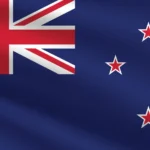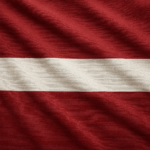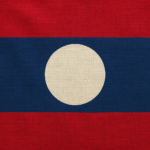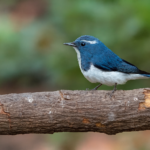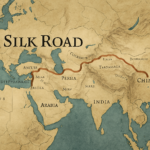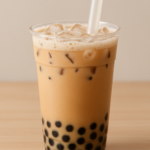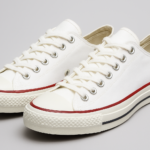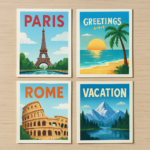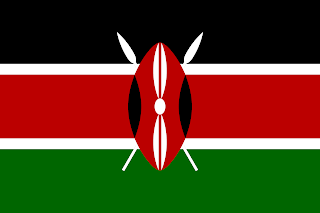
Kenya is an East African country with a coastline on the Indian Ocean. It is made up of savannah, lakelands, the spectacular Great Rift Valley, and mountain highlands. It also has wildlife such as lions, elephants, and rhinos. Safaris depart from Nairobi, the capital, and visit the Maasai Mara Reserve, famous for its annual wildebeest migration, and Amboseli National Park, which offers views of Tanzania’s 5,895-meter-high Mt. Kilimanjaro.
Kenya is an East African country bordered by five other countries: Ethiopia, Somalia, South Sudan, Tanzania, and Uganda.
Kenya’s president can be appointed for a five-year term, and he or she can only serve as president twice. In Kenya, the Supreme Court is the highest court, the Court of Appeal is the second highest, and the High Court is the third highest.
Kenya has been referred to as the “cradle of humanity” and the “birthplace of humanity,” as evidence of some of the earliest human tools dating back to around 3.3 million BC has been discovered in the country. Humankind’s descendants are thought to have migrated to Kenya to populate the rest of the world.
According to the current exchange rate, a US dollar will buy approximately 100 Kenyan Shillings when exchanged for the local currency.
In Kenya, the remains of at least seven hominid species have been discovered, including the earliest known Homo fossil, which dates back 2.4 million years.
The Great Wildebeest Migration also takes place in Kenya. Between the Serengeti in Tanzania and the Maasai Mara in Kenya, approximately 1.7 to 2 million animals (including gazelle, zebra, and eland) migrate. This transition has been dubbed one of the “Seven New Wonders of the World,” and the event has also been dubbed “The World Cup of Wildlife.”
Mount Kenya (the country’s highest peak) inspired the name Kenya. The name’s meaning is unknown, but it could be derived from the Kikuyu, Embu, and Kamba words “kirinyaga,” “kirenyaa,” and “kiinyaa,” which all mean “God’s resting place.”
The Maasai Mara has one of the highest lion densities in the world.
Kenya was first colonized by Britain as part of the British East African Protectorate in 1895, and then as a crown colony administered by a British governor beginning in 1920.
Although school is free in Kenya, many children are too preoccupied to attend. They support their families by working the land, caring for cattle, cooking, and fetching water.
Kenya’s flag is made up of horizontal black, red, and green stripes separated by thinner white stripes. A shield and two crossed spears are in the center. The indigenous people are represented by black, the struggle for freedom is represented by red, the land is represented by green, and the unity and peace is represented by white. The Maasai people carry shields and spears, which reflect Kenya’s traditional ways of life.
Music and storytelling are significant components of Kenyan culture. Tribes across the country have used songs, stories, and poems for centuries to pass on their beliefs, history, and customs.
Kenya gained independence from the United Kingdom in 1963, after a protracted guerrilla war with British colonialists who committed a number of atrocities, including massacres of civilians.
More than 60 languages are spoken in Kenya, and there are more than 40 ethnic groups. Almost everyone speaks at least two African languages.
Nairobi, the capital city, gets its name from a Maasai phrase that means “cool waters” and refers to a cold water stream that ran through the area in the nineteenth century.
To protect these animals, the Kenyan government has established more than 50 reserves and parks.
Nairobi has been dubbed ‘Nairobbery’ by expats due to its poor safety standards.
On August 9, 2012, at the 2012 Summer Olympics in London, David Rudisha led from start to finish to win gold in what was dubbed “The Greatest 800 Meter Race Ever,” becoming the first and only runner to break the 1:41 barrier for the 800 m race.
Mount Kenya, at 5,199m (17,057ft), is Africa’s second-highest mountain, after Tanzania’s Kilimanjaro.
According to the World Bank, Kenya’s population density reached a high of 85.15 in 2016 and a low of 14.69 in 1961.
Mount Kenya is one of the seven second summits, or the mountains that are the second highest on each continent. Because there is less mountaineering infrastructure in place, these mountains are considered more difficult to climb than the seven summits (the highest peaks on each continent), and they have higher fatality rates and lower success rates.
Freedom of religion is one of Kenyans’ constitutional rights. The majority of the country’s population is Christian. Muslims, Hindus, and Sikhs are among the other religious groups.
Kenya produced the first African woman to receive the Nobel Peace Prize. Wangari Maathai was awarded the Nobel Peace Prize in 2004 for “her contribution to sustainable development, democracy, and peace.”
Kenya is the birthplace of Barack Obama, former President of the United States of America. According to The Associated Press, he recently visited the country to promote the opening of a sports and training center founded by his half-sister, Auma Obama, through her charitable foundation.
Kenya has seven World Heritage Sites designated by UNESCO. Only South Africa (10), Ethiopia (9), Morocco (9) and Tunisia (8) have more in Africa.
Kenya’s main source of foreign income is coffee. Surprisingly, only 3% of Kenya’s coffee crop is consumed locally.
Kenya produces some of the best long-distance runners in the world, particularly marathon runners. Kenyan Eliud Kipchoge has won more gold medals and set more records in marathon running than any other athlete in history.
Slavery has played a significant role in Kenya’s history. Many Kenyans were kidnapped and sold as slaves by Arabs, Europeans, and Americans during the 1600s and 1700s.
The lion is Kenya’s national symbol.
The majority of Kenyans live in the highlands, where Nairobi, the capital, is located at an elevation of 1,700 meters.
Kenya is one of the best places in the world to see wildlife, including the famous Big Five game animals of lions, leopards, rhinos, elephants, and buffalo.
Jomo Kenyatta International Airport (JKIA or NBO) in Kenya is one of the largest airports in East Africa and the ninth busiest in Africa.
The world-renowned Maasai Mara National Reserve is famous for its abundant wildlife and the annual migration of half a million animals from Tanzania, including wildebeest, gazelles, and zebras, as well as their predators.
Some of the forests, particularly in Kakamega, are home to some of the rarest species of butterflies and snakes found nowhere else.
Kenya is home to over 40 tribes and over 60 tribal languages.
Kenya was also the regional hub for trade and finance in East Africa due to its geographical location.
In Kenya, ugali is a staple meal, with most meals centered on the thick, doughlike mass made from maize and/or cassava flour.
Kenya is home to a portion of Lake Victoria, the world’s second largest freshwater lake. Tanzania and Uganda share the lake with the country. Lake Superior in North America is the world’s largest freshwater lake.
Polygamy is legal in Kenya, so men can take more wives without consulting their current spouses. The contentious marriage law was enacted in 2014.
